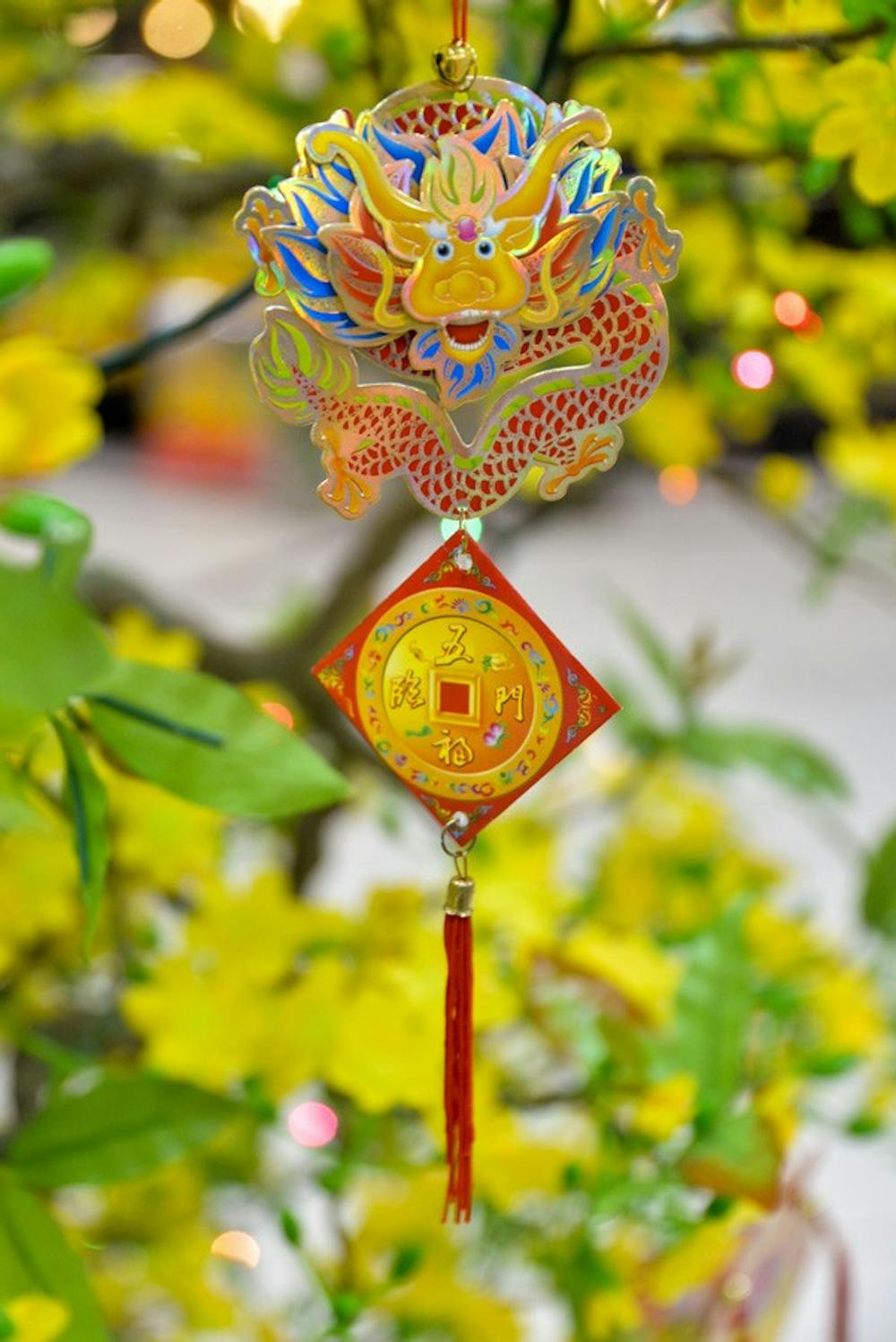 The dragon is a traditional symbol of Chinese New Year and adorns homes and businesses alike during the celebration, as seen at Mekong Supermarket in Mesa, Arizona on February 17, 2015. (J. Bauer-Leffler/The State Press)
The dragon is a traditional symbol of Chinese New Year and adorns homes and businesses alike during the celebration, as seen at Mekong Supermarket in Mesa, Arizona on February 17, 2015. (J. Bauer-Leffler/The State Press)While most ASU students may think of Feb. 18 as just another Wednesday, international students long for the Chinese New Year traditions of their home country, like eating dumplings and watching the broadcast New Year's show.
Because the holiday’s eve does not receive as much recognition in America, these students must welcome the new year without the company of their families, Coalition of International Students coordinator Xin Zehou said.
“(In America), it’s just another day,” she said. “Sometimes you feel bad because your parents are back home alone and they really want you back, but you can’t. … We do have a lot of Chinese students here though, so they often get together.”
America offers different perspectives of Chinese cultures when students from different parts of the east celebrate together, Zehou said.
“Here, you can experience different traditions because, in China, the people from the Northern part will celebrate in a way different than the Southern people,” she said. “But here, there are a lot of ways of celebrating it if you are a person from the South celebrating with a someone from the North.”
However, Zehou said some New Year traditions are universal.
“We will probably make dumplings, which is something that every family has to do on New Years Eve,” she said. “They mean different things in different parts of China, but it’s something you have to have when we get together for dinner.”
Cooking and eating dumplings often represents familial bonds, supply chain management junior Bingchen Zhan said.
 This Chinese New Year brings in the Year of the Ram, and
This Chinese New Year brings in the Year of the Ram, and decorations can be found marrying the images of the ram
and the traditional Chinese Dragon. (J. Bauer-Leffler/The
State Press)
“I actually heard this from my grandparents: You keep the sides of the dumpling together to make a whole,” he said. “If you put meat in it, you have to cover it to keep it together, so it’s like keeping the family together.”
Zhan said he and his family would also watch the government’s annually televised Chinese New Year show.
“I’m from the Eastern China, and most Eastern people will like to watch the Chinese New Year show,” he said. “We eat dumplings all together, have fireworks, watch the show and then go to sleep.”
Other students, like junior Bowei Zhu, celebrate different annual traditions with their families.
“The first week of the New Year, you’re not supposed to cut your hair or sweep the floor,” he said. “Hair is like a part of your body, so if you cut it, you are giving our luck away for the New Year. If you are sweeping the floor, you sweep it inside the house. It’s like you keep all the luck inside your house.”
While away from home, Zhu, who is Chinese Students and Scholars Association president and engineering management, will celebrate the New Year by cooking fish with his friends.
“We will have a fish and not finish it,” he said. “We keep it until new year so you have food for the next year –– and (hopefully) the entire year. This is like your wishes.”
ASU students interested in celebrating the Chinese New Year may attend a celebration on Feb. 18 located at the Student Services Lawn, provided by the Coalition of International Students.
Reach the reporter at aplante@asu.edu or follow @aimeenplante on Twitter.
Like The State Press on Facebook and follow @statepress on Twitter.




